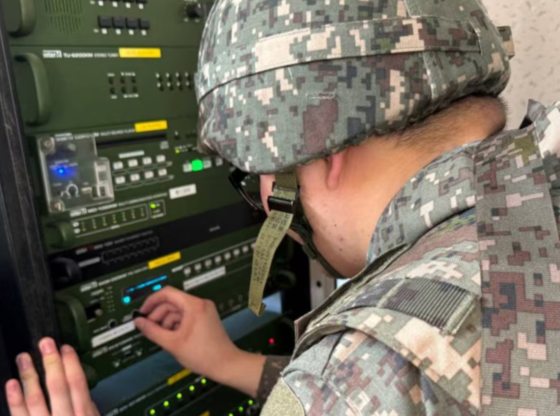South Korea said on Friday it had restarted propaganda broadcasts to North Korea in retaliation for its latest round of junk balloons, as the two sides on the Korean Peninsula are reviving Cold War-era tactics that are fueling hostility between them.
South Korea’s Joint Chiefs of Staff said in a statement on Friday that the military has repeatedly issued stern warnings about North Korea’s continued airdrops of garbage balloons. According to the warnings, loudspeaker broadcasts were made for about 10 hours from Thursday evening (July 18) to early Friday morning (July 19) at the locations where North Korea released the balloons.
The South Korean military said: “What countermeasures the South Korean military will take in the future depends entirely on North Korea’s actions.”
This is the first high-pitched broadcast to North Korea in 39 days. On June 9, South Korea’s National Security Council (NSC) decided to restart multiple fixed loudspeaker equipment in response to North Korea’s frequent release of garbage balloons.
The content of the broadcast has not been disclosed, but the June 9 broadcast reportedly included K-pop songs, weather forecasts and news about Samsung, South Korea’s largest company, as well as criticism of North Korea’s missile program and crackdown on foreign videos.
South Korea’s response to North Korea’s resumption of loudspeaker broadcasts could provoke an angry response from North Korea, which has always been extremely sensitive to information from the outside world.
In 2015, after South Korea made its first public broadcast in 11 years, North Korea fired at South Korean loudspeakers in the border area, prompting South Korea to retaliate. The accidental firing did not cause any casualties.
Pyongyang’s garbage balloon offensive
Since May this year, Pyongyang has repeatedly sent balloons carrying garbage and even feces into South Korea, claiming that this was retaliation for South Korean activists sending anti-Pyongyang leaflet balloons into North Korea.
South Korea’s military said earlier on Friday that North Korea had sent more than 200 garbage balloons into South Korea between July 18 and 19, the eighth time this year. North Korea has sent more than 2,000 garbage balloons so far, and has even disrupted takeoff and landing operations at Incheon International Airport several times.
Earlier this week, Kim Yo-jong, the powerful sister of North Korean leader Kim Jong-un and vice director of the Central Committee of the Workers’ Party of Korea, hinted in a conversation that she would release garbage balloons again or launch new countermeasures in response to what she said was a new round of leaflet distribution activities by the South Korean people.
Kim Yo-jong warned South Korean “scum” must be prepared to pay a “high price” as concerns mount that North Korea could launch an actual provocation, rather than just releasing garbage balloons.
South Korea’s military said on Wednesday it had stepped up its preparations for any provocation from North Korea, which could fire at balloons crossing the border or deploy mines downstream, the report said.
North Korean defectors and activists in South Korea often release balloons into North Korea containing food, medicine, anti-Pyongyang leaflets, USB flash drives containing K-pop videos and TV dramas, and U.S. dollar bills as a propaganda effort.
It was not immediately clear whether any balloons had been sent to North Korea recently, or which South Korean activist group the balloons might have come from.
North Korea sees the propaganda balloons as a serious provocation to its leadership. In the past, it has blown up inter-Korean liaison offices in border towns in anger over defector groups dropping leaflets along the Demilitarized Zone between North and South Korea, and has fired at propaganda balloons flying toward its territory.
Tensions between the two Koreas have risen in recent years over North Korean missile tests and the expansion of joint U.S.-South Korean military exercises, which North Korea has described as invasion drills. Experts worry that North Korea’s growing cooperation with Russia could lead to more provocative actions by North Korean leader Kim Jong Un ahead of the U.S. presidential election in November.

